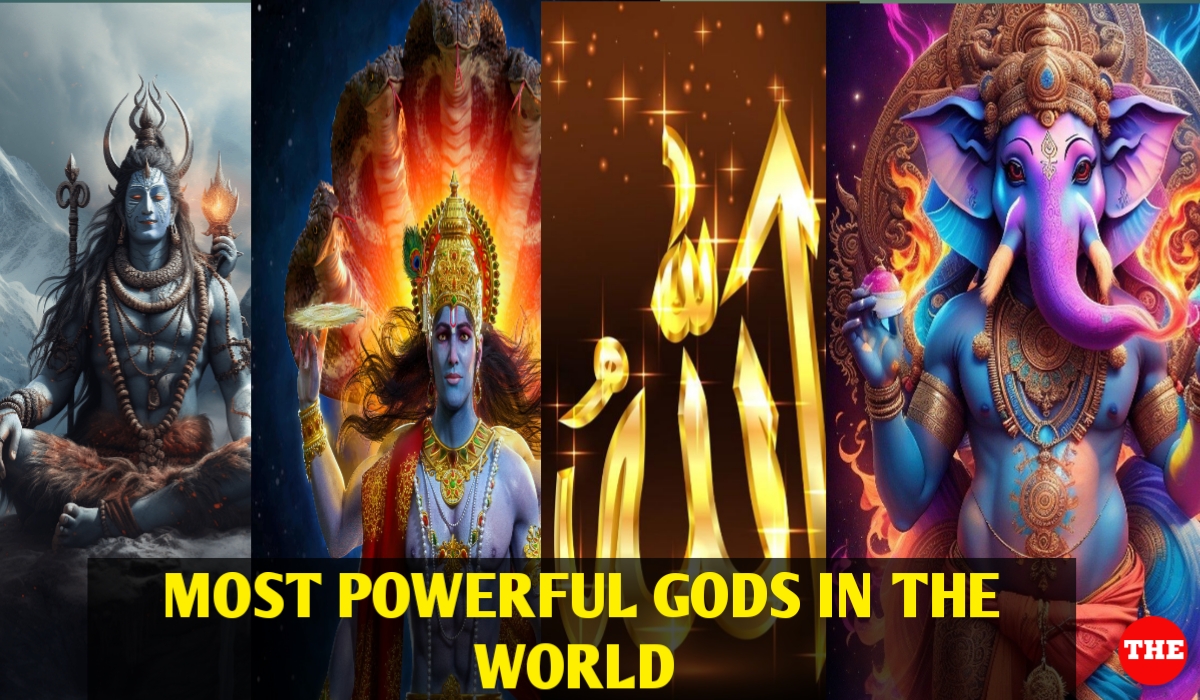
Top 10 most powerful gods in the world:
1. Lord Shiva: The Supreme Transformer
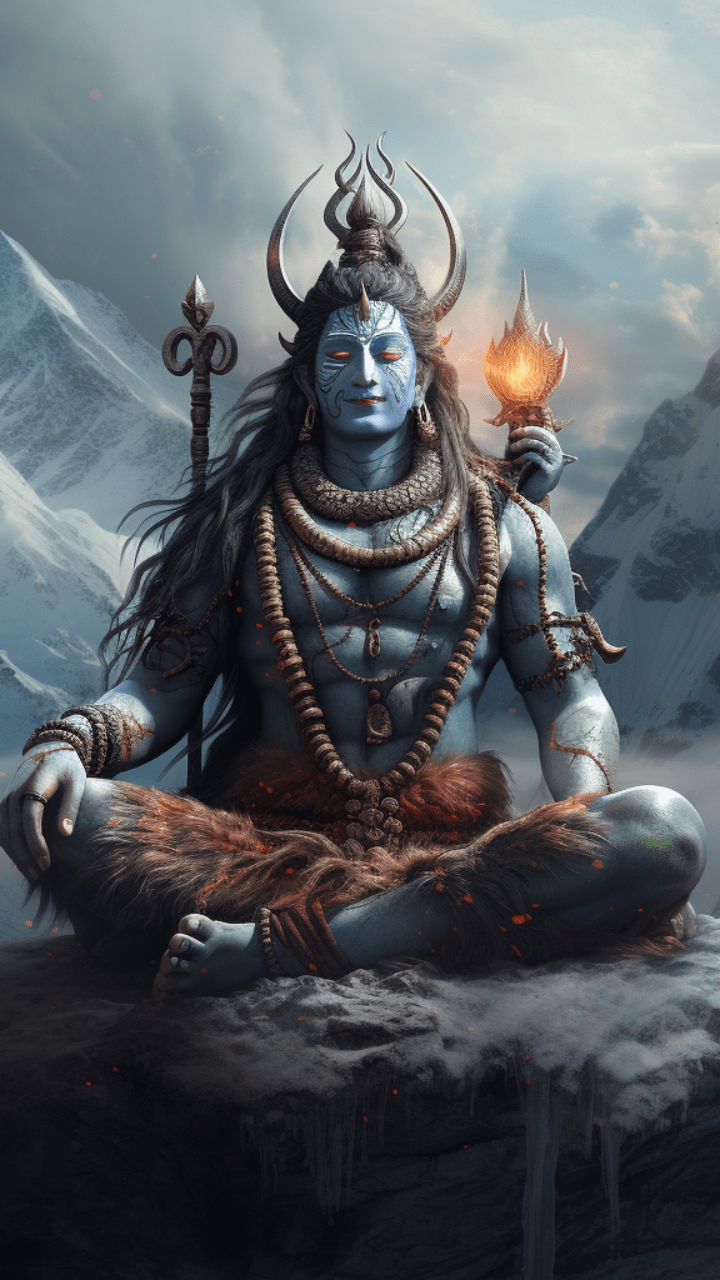
In the list of the most powerful gods in the world, Lord Shiva is in the first place because he is the supreme transformer or supreme deity. Hinduism, one of the world’s oldest religions, boasts a god of deities, and among them, Lord Shiva holds a unique and respected position.
Lord Shiva plays a central role in this universe, and he gives immense powers to his devotees, who pray hard every day and every second.
As one of the principal deities in Hindu mythology, Lord Shiva includes both the destructive and transformative forces of the universe.
Often depicted with ash smeared on his body and a serpent coiled around his neck, he symbolizes the cycle of creation, preservation, and destruction.
Devotees turn to Lord Shiva for guidance on meditation, spirituality, and asceticism, as he represents the ultimate seeker of truth and knowledge.
Origin:
- Birth of Lord Shiva: Lord Shiva is one of the principal deities in Hinduism. According to mythology, he was not born in the usual way. Instead, he emerged as a cosmic pillar of light, known as the “Lingam,” representing infinite energy.
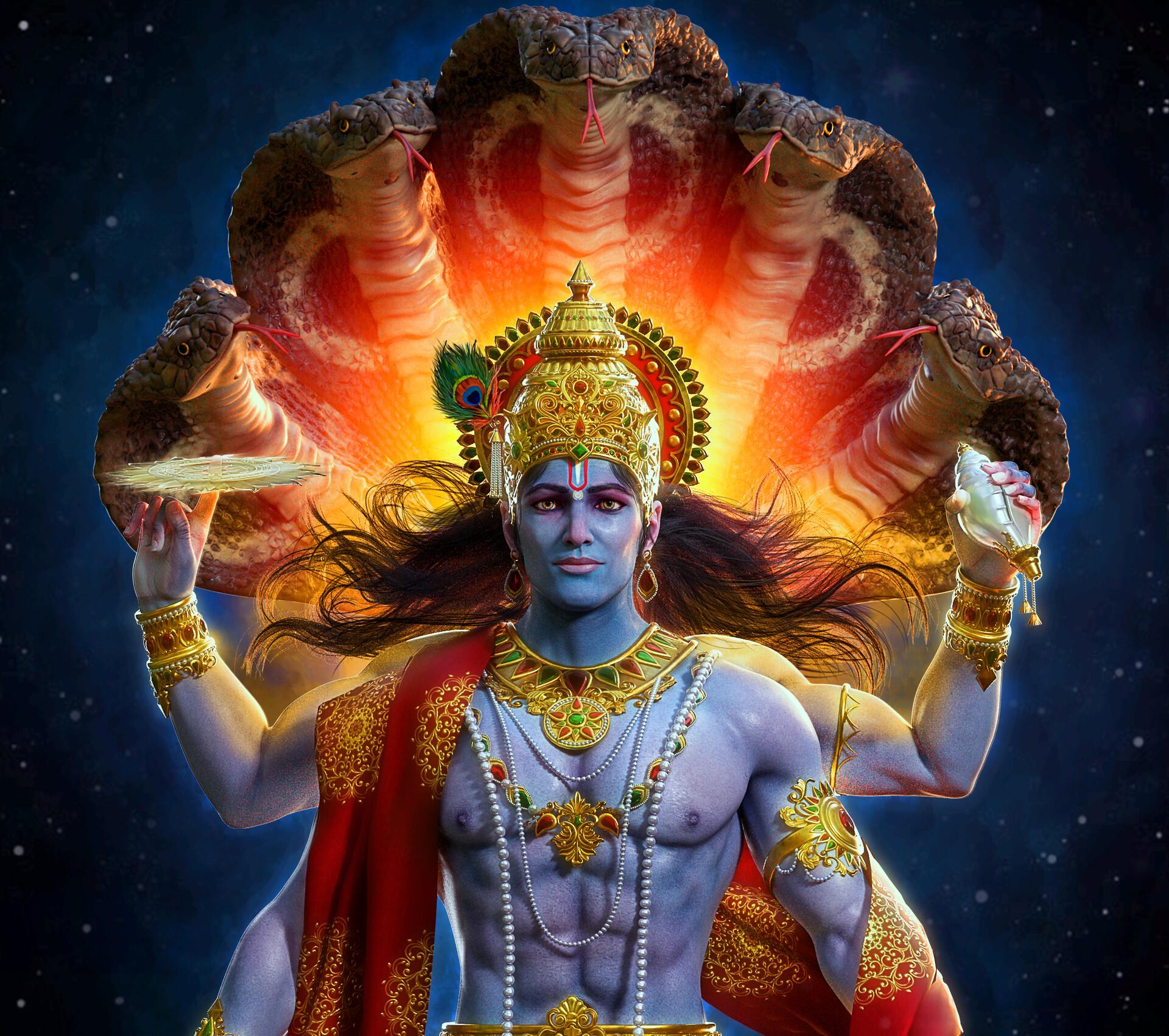
Within the expansive kingdom of Hinduism, “Lord Vishnu” is celebrated as the preserver and protector of the universe.
So he is also one of the most powerful gods in Hinduism. As another member of the Hindu trinity or Hindu gods, Lord Vishnu is believed to be in human form on Earth whenever the cosmic balance is threatened, manifesting in different forms or avatars to maintain order.
His role is crucial in ensuring the well-being of creation, and his devotees find solace in his compassionate and nurturing presence.
Origin:
According to Hindu mythology, Lord Vishnu is said to rest on the cosmic serpent Shesha in the ocean of milk. From this state, he emerges in different incarnations to protect the world.
3. Allah: The All-Powerful Singular Deity
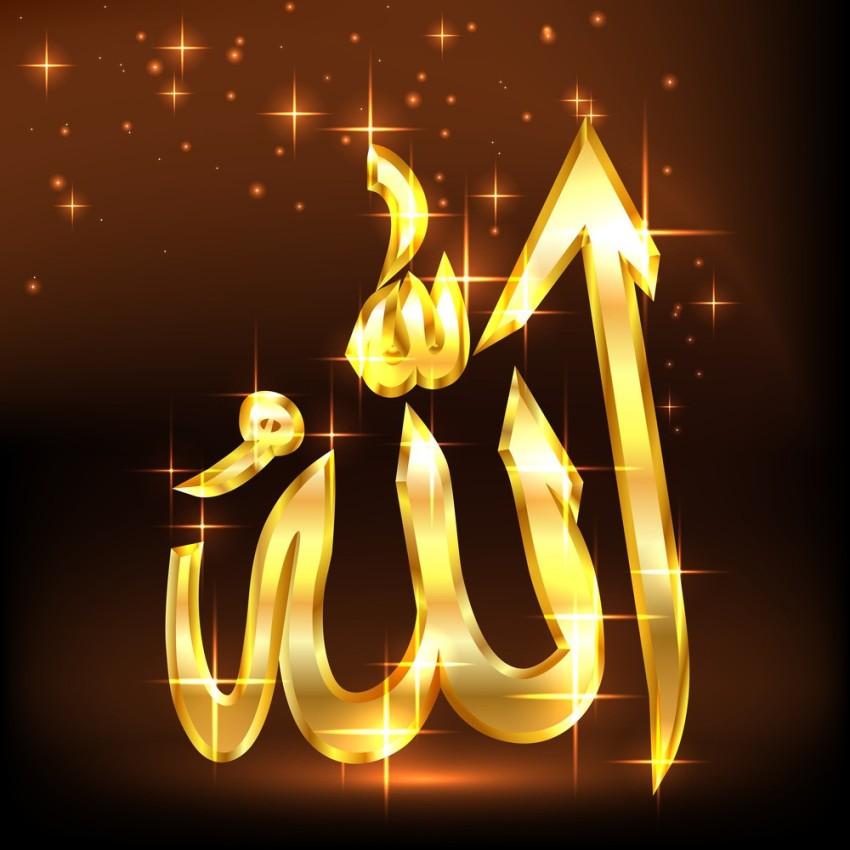
Islam, one of the world’s major monotheistic religions, many people believe Allah is one of the most powerful gods of all the world, centers on the worship of Allah, the singular and all-powerful deity.
As the core figure in the Islamic faith, Allah is the one to whom Muslims offer their prayers, dedicating their lives to submission and devotion. The Quran, the holy book of Islam, serves as the primary source of guidance for followers, emphasizing the principles of faith, compassion, and justice.
Origin:
The term “Allah” is Arabic for God. In Islam, Allah is considered the supreme and only deity. The concept of Allah predates Islam and was used by pre-Islamic Arabs. It’s rooted in the Semitic languages and is similar to the Hebrew word for God, “Elohim.”
4. Ganesh: The Remover of Obstacles
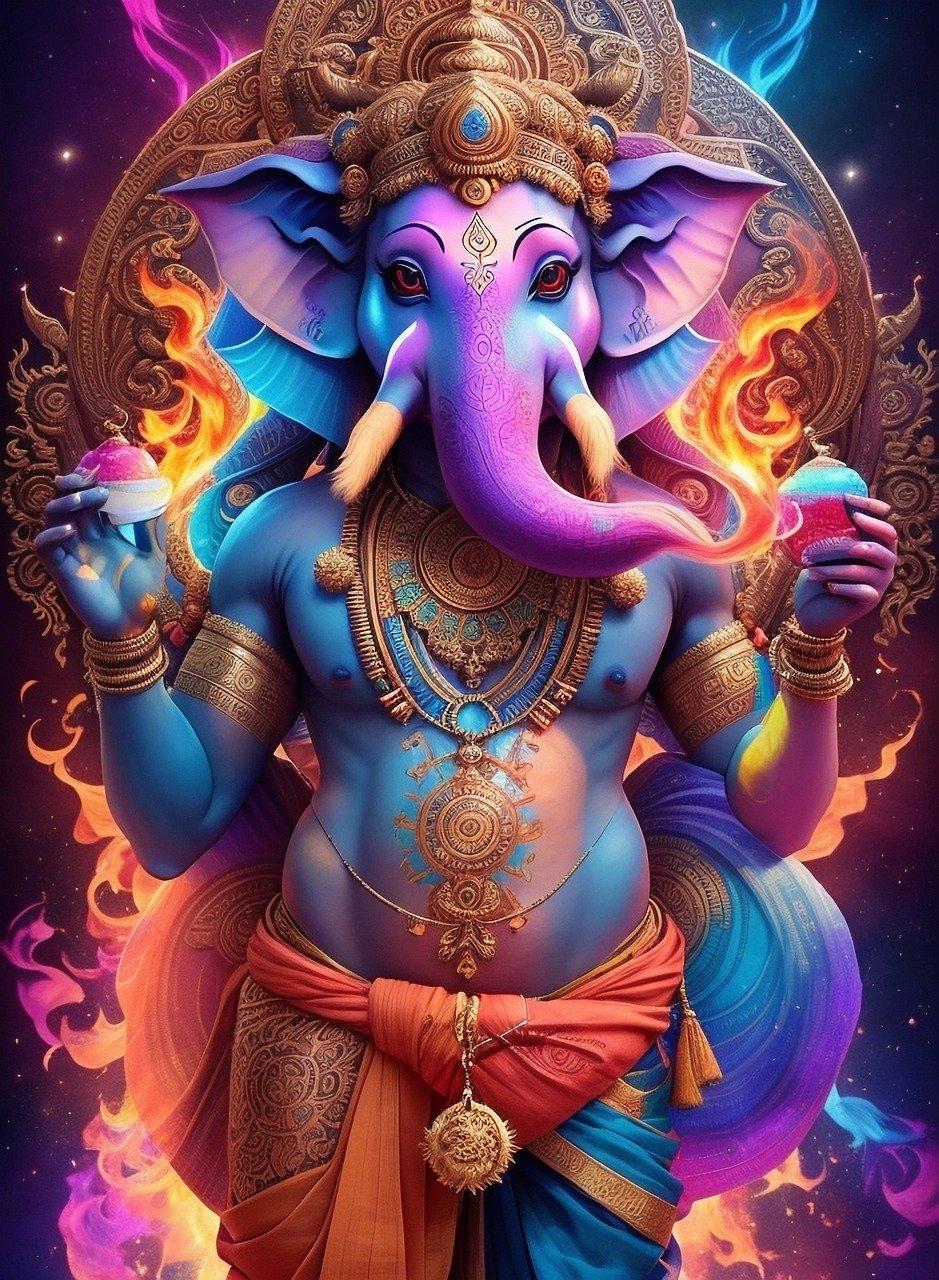
Lord Ganesha, also known as Ganapati or Vinayaka, Lord Ganesh is the son of Lord Shiva and is one of the most beloved deities in Hinduism. Easily recognizable by his elephant head, Lord Ganesh is venerated as the remover of obstacles and the lord of beginnings.
Devotees seek his blessings and guidance, especially when embarking on new ventures or facing challenges. His iconic image graces the entrances of countless homes and businesses as a symbol of protection and prosperity.
Origin:
According to Hindu mythology, Ganesha was created by Parvati, the wife of Lord Shiva. Legend has it that he was formed from clay and brought to life by his mother. Ganesha is easily recognizable by his elephant head and is celebrated in various festivals across India.
5. Jesus Christ: The Saviour of Humanity
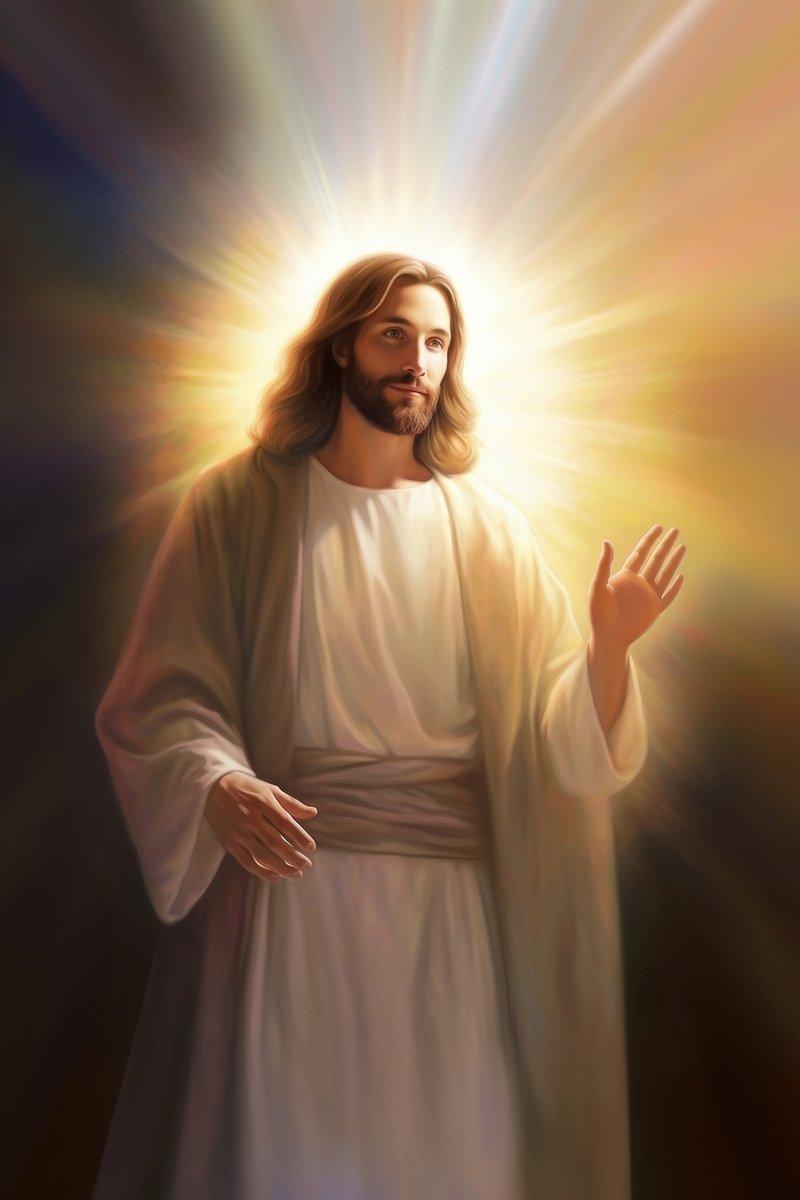
ChrChristity, a global religion with over two billion followers, centers on the life and teachings of Jesus Christ. As the central figure in the Christian faith, Jesus is revered as the Son of God and the Saviour of humanity.
His life, ministry, crucifixion, and resurrection are central to Christian doctrine, emphasizing the values of love, forgiveness, and salvation.
The Bible, consisting of the Old and New Testaments, serves as the foundational text for Christians worldwide.
Origin:
Jesus Christ is a central figure in Christianity. According to the Bible, he was born in Bethlehem around 2,000 years ago.
Christians believe he is the Son of God and came to Earth to teach about love and salvation. His life, teachings, death, and resurrection are key elements of the Christian faith.
6. Lord Krishna: The Divine Playful One
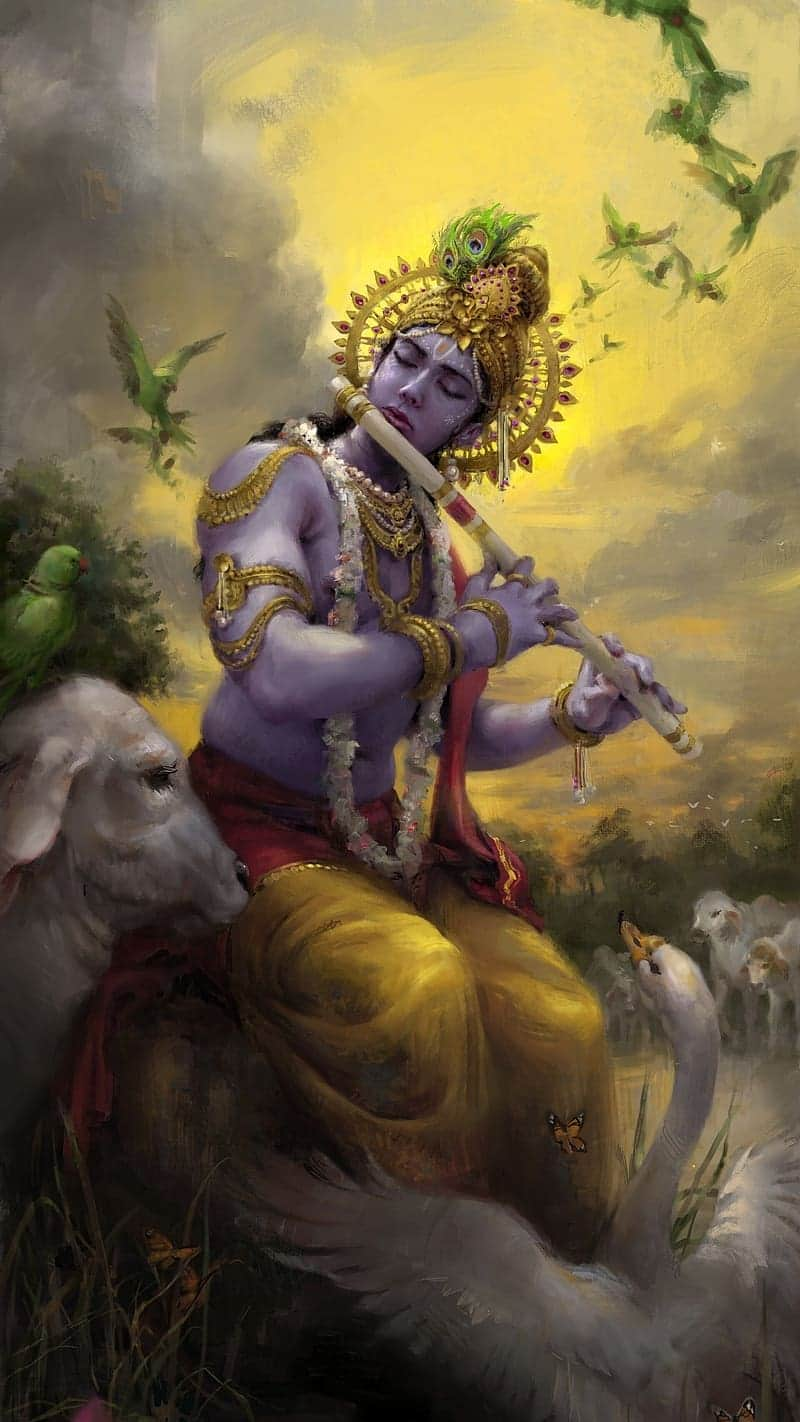
In the vibrant tapestry of Hindu deities, Lord Krishna shines the human form of Lord Vishnu. His divine and playful nature endears him to millions of followers.
Lord Krishna represents love, wisdom, and the eternal pursuit of divine guidance. His life and teachings, chronicled in the epic Mahabharata and the Bhagavad Gita, offer profound insights into the nature of existence, the pursuit of righteousness, and the path to spiritual enlightenment.
Origin:
Lord Krishna is a revered figure in Hinduism, believed to be the eighth avatar of Lord Vishnu. He is often depicted as a divine, blue-skinned figure playing a flute.
According to Hindu scriptures like the Bhagavad Gita, Krishna was born in Mathura and grew up in Vrindavan.
His teachings emphasize duty, righteousness, and devotion, and his divine playfulness is celebrated in stories like the Mahabharata.
7. Odin: The Norse Chief of Gods
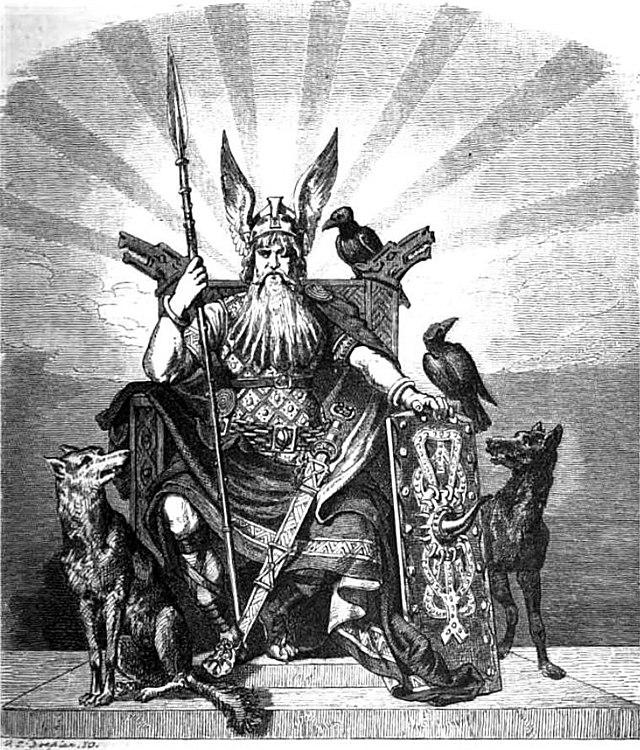
Norse mythology, which thrived in ancient Scandinavia, features a rich and complex pantheon of deities, with Odin reigning as the chief of the gods.
Often depicted with a one-eyed visage and a staff, Odin embodies qualities of wisdom, war, poetry, and magic.
His role in the Norse myths is varied, from orchestrating the fates of gods and mortals to sacrificing an eye in pursuit of profound knowledge.
Origin:
Odin is a powerful god in Norse mythology, originating from ancient Scandinavian beliefs.
He’s often seen as the chief of the Aesir, a group of gods. Known for wisdom, war, and magic, Odin rides an eight-legged horse named Sleipnir and wields a spear.
8. Goddess Durga: The Divine Feminine Force
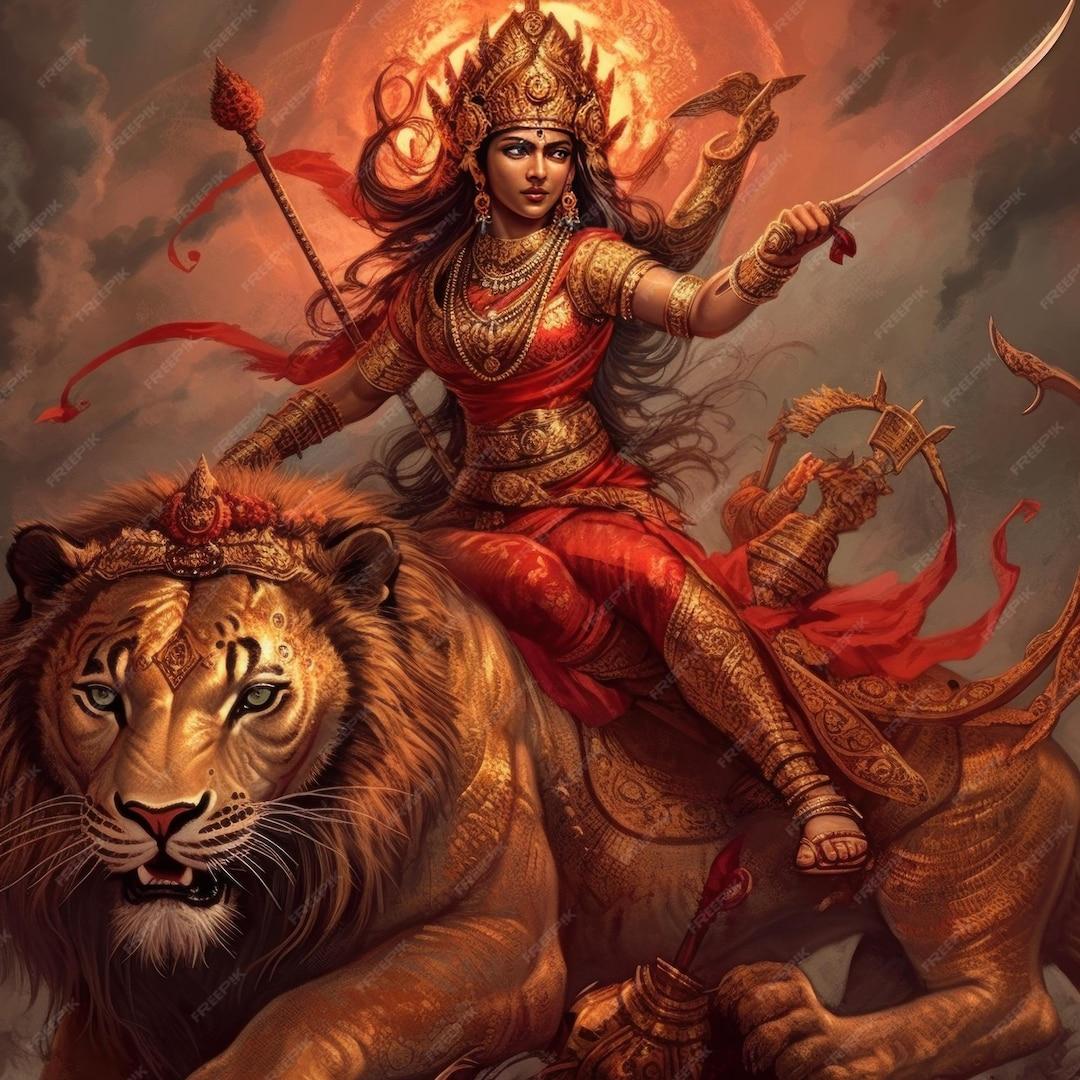
In Hinduism, the divine feminine is celebrated through various goddesses, and Goddess Durga stands as a symbol of immense strength and protective qualities.
Her many arms and radiant form exemplify her boundless power and compassion. Durga is often worshipped during the festival of Navaratri, where her victory over the buffalo demon Mahishasura is celebrated.
Devotees seek her blessings for courage, strength, and the triumph of good over evil.
Origin:
Goddess Durga is a powerful deity in Hinduism. According to mythology, she was created by the combined energies of various gods to defeat a powerful demon named Mahishasura.
Durga is often depicted riding a lion and armed with different weapons. She symbolizes the triumph of good over evil and is worshipped during the festival of Durga Puja.
9. Ahura Mazda: The Supreme God of Zoroastrianism
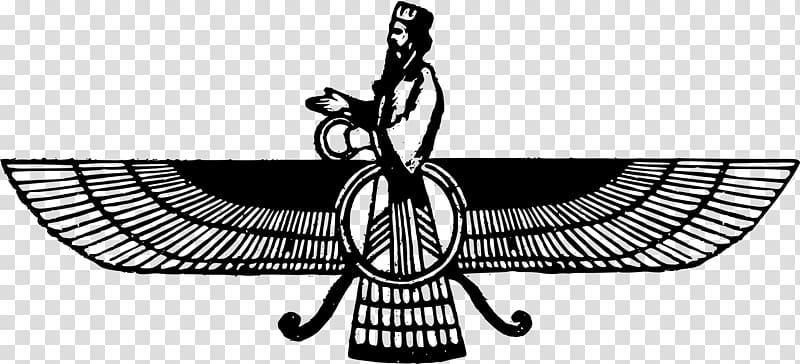
Zoroastrianism, one of the world’s oldest monotheistic religions, places Ahura Mazda at the pinnacle of divine authority. As the representation of goodness, truth, and order, Ahura Mazda stands as the singular god in the Zoroastrian faith.
Followers of this ancient religion admire the principles of dualism, with Ahura Mazda representing the force of good in opposition to Angra Mainyu, the force of evil.
Origin:
Ahura Mazda is the supreme god in Zoroastrianism, an ancient religion.
People who follow this faith believe Ahura Mazda is the creator of the universe and embodies goodness and wisdom.
10. Athena: The Greek Goddess of Wisdom
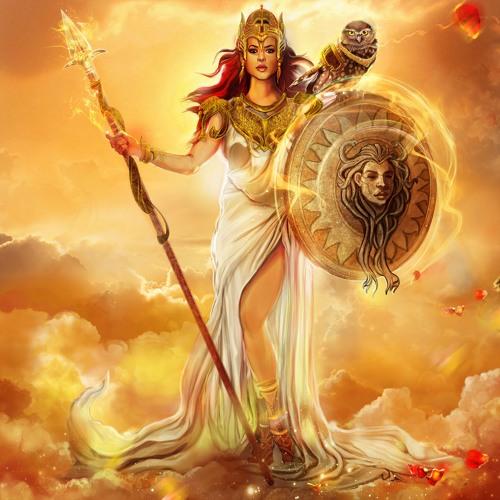
In the rich and complex tapestry of Greek mythology, Athena reigns as the goddess of wisdom, courage, and strategic warfare. Often depicted with a helmet and shield, she represents intelligence, strategy, and wisdom in the face of conflict.
Athena’s role in Greek myths is vast, from aiding heroes in their quests to serving as the patron deity of Athens, the city named in her honor.
Each of these ten deities offers a unique and profound perspective on the divine. They serve as a source of inspiration, guidance, and strength for countless individuals and communities worldwide.
By exploring their stories, symbolism, and significance, we gain a deeper appreciation for the diverse and complex world of spirituality and religion.
Origin:
In Greek mythology, Athena is a goddess. Legend says she was born from the head of her father, Zeus. Athena is known for wisdom, war strategy, and courage.
She’s often shown with a shield and owl, symbolizing protection and wisdom.
Let’s clear people’s thoughts by asking the most frequently asked questions (FAQ).
Q. Who is the god of death?
The god of death is “Yama” in the mythology of South India. Yama is the first person to be dead on earth, so many people believe that if we are dead, we are going to first be Yama, and then god yama will decide to go to hell or heaven for the dead.
Q. Who is the most powerful god in the world?
In different cultures and religions, God is referred to by various names, such as Shiva, Allah, Jehovah, Brahman, and more.
The concept of a higher power remains similar across these names, highlighting the idea that, despite different names, there’s a common understanding of a higher power.
Just as “Dady,” “Father,” “Pitaji,” and “Abbu” all refer to the same familial role, the various names for God convey a shared notion of a divine being.
Q. Which is the most powerful religion in the world?
We can’t say the most powerful religion in the world by name. Everyone says their religion is more powerful in the world than other religions Because it is based on their respective place.
Based on followers, Christianity is the most followed religion in the world. Here are some of the most followed religions in the world.
| Religious Group | Subgroups or Denominations | Followers (Approx.) |
|---|---|---|
| Christianity | Roman Catholicism, Protestantism, Orthodoxy | 2.3 billion |
| Islam | Sunni, Shia | 1.9 billion |
| Hinduism | 1.2 billion | |
| Buddhism | 520 million | |
| Sikhism | 30 million | |
| Judaism | 14 million | |
| Bahá’í Faith | 7 million | |
| Jainism | 4.5 million | |
| Confucianism | N/A (Considered more a philosophy than a religion) | |
| Shinto | 4 million | |
| Taoism | 12 million | |
| Zoroastrianism | 200,000 |
Q. Which is the most powerful Dharma in the world?
Santana Dharma,” signifying “eternal dharma” or “eternal order” in Devanagari, stands distinct as an alternate designation for Hinduism, woven into the fabric of Sanskrit and diverse Indian languages, coexisting with the widely recognized term Hindu Dharma.
Q. Which is the strongest god in the world?
Lord Shiva, because he is the supreme transformer. Hinduism, one of the world’s oldest religions, boasts a pantheon of deities, and among them, Lord Shiva holds a unique and respected position.
